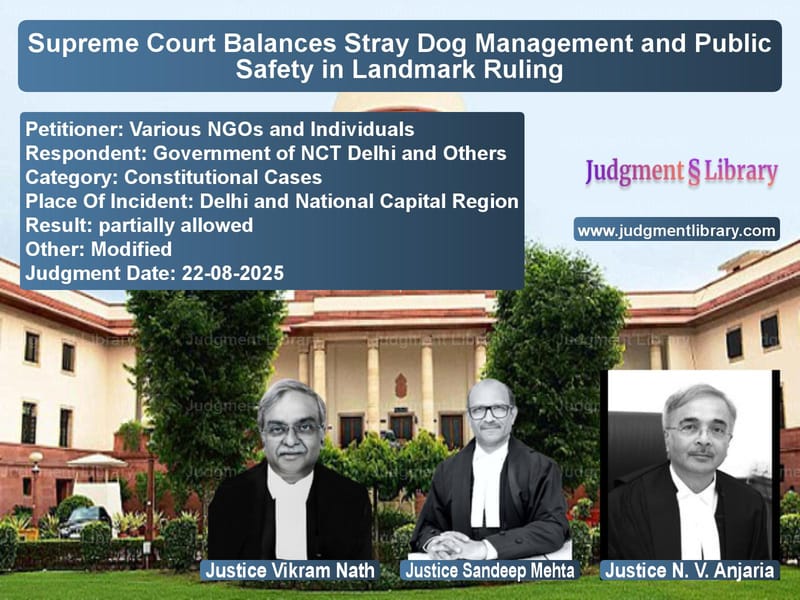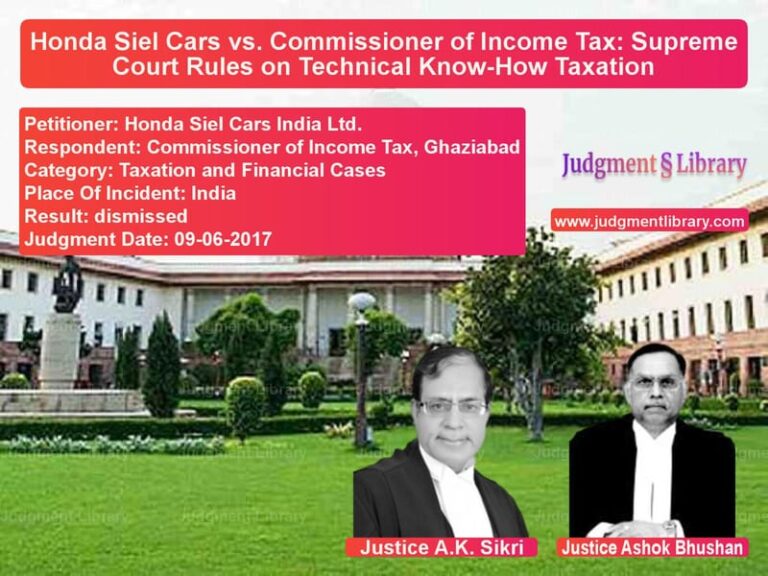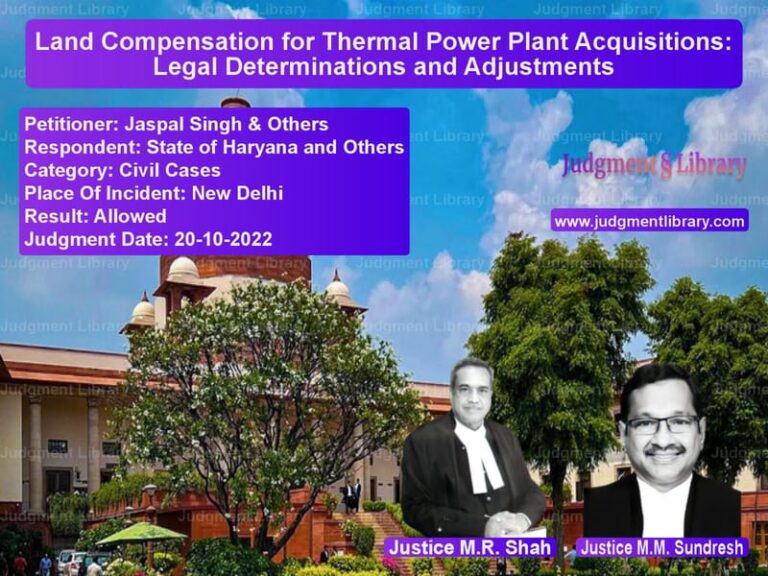Supreme Court Balances Stray Dog Management and Public Safety in Landmark Ruling
The Supreme Court of India recently delivered a crucial judgment that strikes a delicate balance between managing the growing stray dog population and protecting public safety. The case emerged from a tragic incident that captured national attention – the death of a six-year-old girl from rabies after a dog attack in Delhi, which prompted the Court to take suo moto cognizance of the escalating crisis.
The Court’s intervention came after a news report titled ‘City Hounded by Strays, Kids Pay Price’ highlighted the alarming situation where children and elderly citizens were becoming victims of dog attacks, with some cases proving fatal due to rabies infection. This prompted immediate judicial action to address what has become a significant public health and safety concern across urban India.
The Initial Directions and Subsequent Challenges
On August 11, 2025, a two-judge bench of the Supreme Court issued sweeping directions to address the stray dog menace in the National Capital Region. The Court mandated that authorities immediately begin ‘picking up and rounding the stray dogs from all localities of Delhi, Ghaziabad, NOIDA, Faridabad, Gurugram as well as areas on the outskirts, and relocate these dogs into designated shelters/pounds.’ The Court made it abundantly clear that ‘in no circumstances, should these stray dogs after their relocation be once again released back onto the streets.’
The Court further warned that ‘any hindrance or obstruction that may be caused by any individual or organization in the smooth and effective implementation of our aforesaid directions will be viewed as contempt of this Court and we shall proceed to take appropriate action in accordance with law.’
These strong directions, however, faced immediate challenges from animal welfare organizations and individuals who identified as ‘animal lovers.’ They argued that the Court’s orders conflicted with existing legal frameworks and raised practical concerns about implementation.
The Arguments from Animal Welfare Groups
The petitioners representing animal welfare interests made several key arguments before the three-judge bench that subsequently heard the matter. They contended that ‘the direction not to release the stray dogs to the original locations from where they would be picked up, after their sterilisation and immunisation, is in clear violation of Rule 11(19) of the ABC Rules framed under the provisions of the Prevention of Cruelty to Animals Act, 1960.’
They further argued that ‘under the garb of order dated 11th August, 2025, the municipal authorities have already started rounding up the stray dogs. Not only this, the animal lovers, who feed the stray dogs, are being harassed and threatened with prosecution.’
Perhaps most significantly, they expressed grave concerns about the fate of captured dogs: ‘There is an imminent risk that the stray dogs who are being picked up in compliance with this Court’s order may be culled because the municipal authorities are not seized of the logistic capability and wherewithal to create the large number of dog shelters/pounds, which would be required to cater lakhs of stray dogs estimated to be present on the streets of New Delhi and NCR region.’
The Government’s Position
Representing the government authorities, Solicitor General Tushar Mehta presented a stark picture of the public health crisis. He referred to newspaper reports indicating that ‘approximately 37,15,713 dog bites occurred in India in 2024, and in several cases, human lives were lost due to trauma and rabies infection.’
Mr. Mehta emphasized that ‘sterilisation alone is insufficient, as it can neither prevent attacks from stray dogs nor can it prevent the rabies infection by dog bites because the immunised dogs with aggressive behaviour would still be capable of attacking and causing severe harm to the vulnerable citizens, if these animals are allowed to remain on the streets.’
He argued that the Court’s directions ‘do not impinge upon the statutory framework but rather operate as interim measures essentially required to protect the Right to Life of the citizens guaranteed under Article 21 of the Constitution of India.’
The Court’s Balanced Approach
The three-judge bench, comprising Justices Vikram Nath, Sandeep Mehta, and N.V. Anjaria, acknowledged the complexity of the issue and the need for a balanced approach. The Court observed that ‘there is not even the slightest doubt in our minds that the intent behind the order is salutary inasmuch as it works towards protecting the citizens at large from the attacks by the aggressive and rabid stray dogs. However, there are certain vital factors that call for a balancing exercise so that the order dated 11th August, 2025, can be taken to its logical conclusion while keeping its ambit within the contour of the legal framework, i.e., the ABC Rules, 2023.’
The Court recognized the practical challenges in implementing the original directions, noting that ‘the mandate to keep all the stray dogs, picked up from Delhi and the adjoining NCR cities, in the municipal shelters/pounds would require logistics of gargantuan proportions including manpower, shelters/pounds, veterinarians, cages and specially modified vehicles for transportation of the captured stray dogs.’
The bench also acknowledged the scientific basis behind the ABC Rules provision for releasing sterilized dogs back to their original locations: ‘The provision in Rule 11(19) that the dogs, upon sterilisation and immunisation, should be relocated to the same locality from which they have been picked up, is scientifically carved out inasmuch as it serves two purposes. Firstly, the same prevents the scope of overcrowding in the dog shelters/pounds, and secondly, the picked-up stray dogs after immunisation and sterilisation are relocated to the same environment where they were living earlier, which is a compassionate treatment.’
The Modified Directions
After careful consideration, the Court modified its earlier directions to create a more balanced and practical framework. The key modifications included:
The Court directed that ‘the dogs that are picked up shall be sterilised, dewormed, vaccinated, and released back to the same area from which they were picked up.’ However, this relocation would ‘not apply to the dogs infected with rabies or suspected to be infected with rabies, and those that display aggressive behaviour. Such dogs shall be sterilised and immunised, but under no circumstances should they be released back onto the streets.’
In a significant move to regulate dog feeding practices that often lead to conflicts, the Court ordered that ‘municipal authorities shall forthwith commence an exercise for creating dedicated feeding spaces for the stray dogs in each municipal ward.’ The Court explicitly stated that ‘under no condition shall the feeding of stray dogs on the streets be permitted. The persons found feeding the dogs on the streets in contravention of the above directions shall be liable to be proceeded against under the relevant legal framework.’
The Court also imposed financial obligations on the intervening parties, requiring that ‘each individual dog lover and each NGO that has approached this Court shall deposit a sum of Rs.25,000/- and Rs.2,00,000/-, respectively, with the Registry of this Court within a period of 7 days, failing which they shall not be allowed to appear in the matter any further. The amounts so deposited shall be utilised in the creation of the infrastructure and facilities for the stray dogs under the aegis of the respective municipal bodies.’
Recognizing that the issue extends beyond Delhi, the Court expanded the scope of the matter, noting that ‘since the application of the ABC Rules is uniform all over the country and the same issues which have been taken up in the Suo Moto Writ Petition have either cropped up or are likely to exist in every State, we propose to expand the scope of this matter beyond the confines of New Delhi and the NCR region.’
Broader Implications
This judgment represents a significant step in addressing one of urban India’s most persistent problems. By balancing animal welfare concerns with public safety imperatives, the Court has provided a framework that acknowledges the rights of both citizens and animals.
The decision emphasizes that while compassion towards animals is important, it cannot override the fundamental right to life and safety of human beings. At the same time, the Court has ensured that animal welfare principles are not completely disregarded, maintaining the scientific approach of the ABC Rules while introducing necessary modifications for public protection.
The ruling also sets an important precedent for municipal authorities across India, providing clear guidelines on how to manage stray dog populations while respecting legal frameworks and practical constraints. The creation of designated feeding areas, in particular, addresses a major source of conflict between animal feeders and other citizens.
As the Court continues to monitor implementation of these directions, this case will likely serve as a landmark in the ongoing effort to find sustainable solutions to human-animal conflict in urban spaces, ensuring that both public safety and animal welfare receive due consideration within our constitutional framework.
Petitioner Name: Various NGOs and Individuals.Respondent Name: Government of NCT Delhi and Others.Judgment By: Justice Vikram Nath, Justice Sandeep Mehta, Justice N. V. Anjaria.Place Of Incident: Delhi and National Capital Region.Judgment Date: 22-08-2025.Result: partially allowed.
Don’t miss out on the full details! Download the complete judgment in PDF format below and gain valuable insights instantly!
Download Judgment: various-ngos-and-ind-vs-government-of-nct-de-supreme-court-of-india-judgment-dated-22-08-2025.pdf
Directly Download Judgment: Directly download this Judgment
See all petitions in Fundamental Rights
See all petitions in Public Interest Litigation
See all petitions in Constitution Interpretation
See all petitions in Judgment by Vikram Nath
See all petitions in Judgment by Sandeep Mehta
See all petitions in Judgment by N.V. Anjaria
See all petitions in partially allowed
See all petitions in Modified
See all petitions in supreme court of India judgments August 2025
See all petitions in 2025 judgments
See all posts in Constitutional Cases Category
See all allowed petitions in Constitutional Cases Category
See all Dismissed petitions in Constitutional Cases Category
See all partially allowed petitions in Constitutional Cases Category







